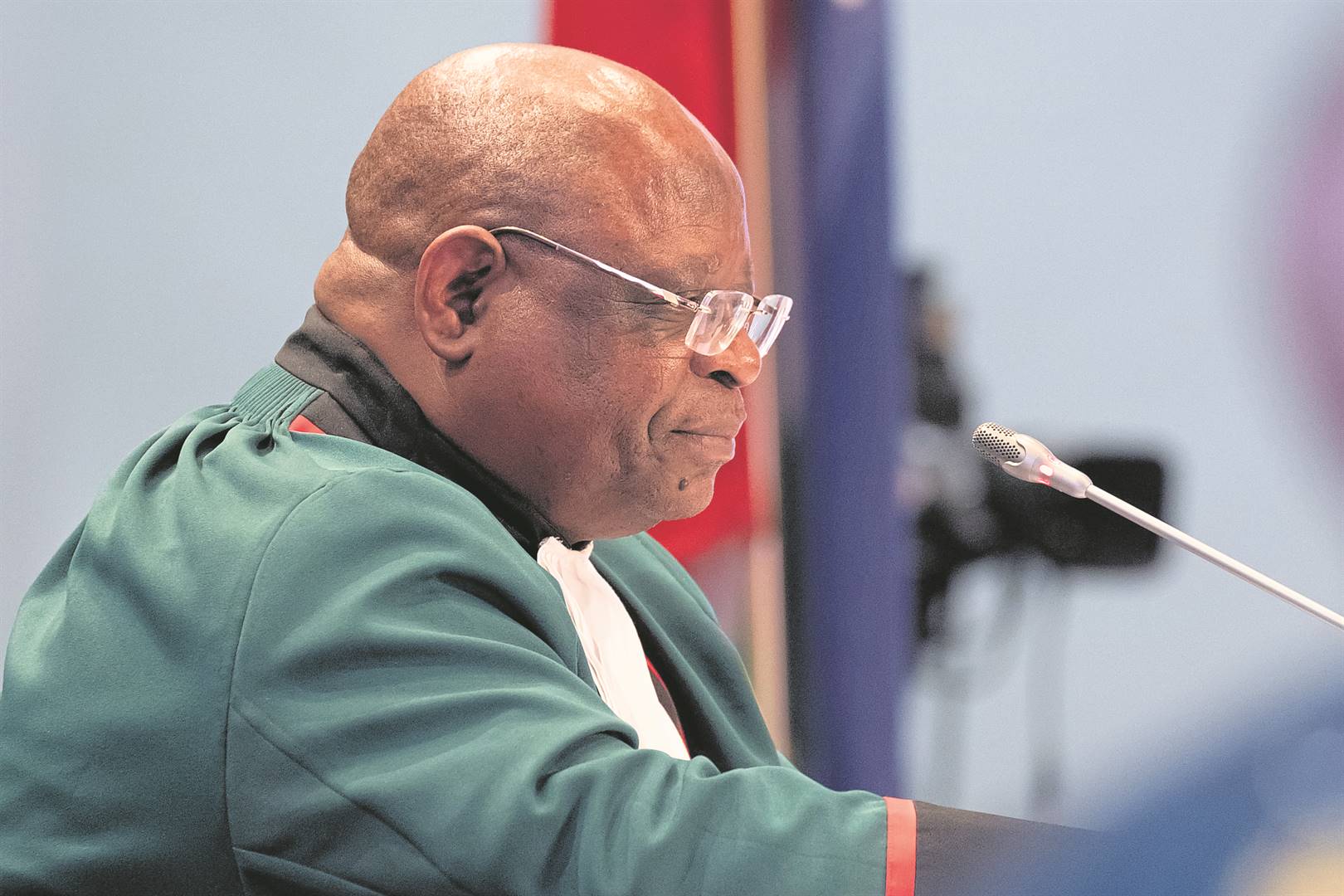
Zondo said that in the financial year under review, all newly-appointed judges had disclosed their registrable interests within 30 days of appointment
Jeffrey Abrahams / Gallo Images
Outgoing Chief Justice Raymond Zondo has blamed the legislative limit on the number of judges who can serve on the judicial conduct committee (JCC) for delays in dealing with complaints.
He said some complaints were disposed of reasonably quickly, but added that others dragged on for some time.
Zondo said the reason for the delays was the legislation that limited members of the JCC to a maximum of seven judges.
Some of these seven judges were in active service and had to deal with other caseloads in their respective courts.
READ: Ramaphosa’s anti-corruption tribunal’s wheels come off as Judge Modiba resigns
“I’ve proposed to the Minister of Justice that the Act be amended to create a bigger pool from which a judge would be picked to deal with a complaint each time the JCC receives a new one.
Zondo said:
The proposal I’ve made is that section 8 of the Judicial Service Commission [JSC] Act, 1994 be amended to provide for the appointment of additional members to the committee whose functions will be limited to dealing with complaints and appeals and who won’t be entitled to vote on any matters.
He added that once the act had been amended, as many as 50 judges could be appointed as additional members of the JCC and could be allocated complaints and appeals.
Delivering the 2022/23 annual judicial report on Friday, Zondo said that judicial accountability included mechanisms provided for in law for disciplinary measures to be taken against any judge or magistrate against whom there were allegations of misconduct.
In the case of judges, he explained, the JCC was the body of first instance that examined and decided on complaints of misconduct against judges.
The JCC falls under the JSC, but makes its decisions on complaints independently of that body.
Zondo said that in the financial year under review, all newly-appointed judges had disclosed their registrable interests within 30 days of appointment, as prescribed by the regulations.
He said 246 of the total of 248 judges in active service had disclosed their interests by31 March 2023, as required.
The remaining two judges had disclosed their registrable interests within a 30-day period, in terms of regulation 3(6).
He said that section 13(3) of the JSC Act required judges to disclose their registrable interests and those of their immediate family members, where applicable.
According to Zondo, regulations on judges’ registrable interests, made in terms of section 13(8) of the JSC Act, required newly appointed judges to disclose their registrable interests within 30 days of their appointment. He said the disclosed information has been recorded in the Register of Judges’ Registrable Interests.
He said that the efficient and effective performance of the courts was critical for a vibrant democracy and that for the period under review, 11 of 13 performance targets had been achieved by the superior courts.
“This represents an 85% achievement.
“Only two performance targets weren’t achieved: percentage of finalised Constitutional Court matters (55%) and percentage of criminal backlog cases finalised (47%),” he said.
Zondo said that the Constitutional Court, the country’s apex court, had finalised 55% of its cases, missing its 70% target.
Although this was not considered a failure, the court had previously performed better and an investigation into the decline was underway.
The high court had finalised 75% of criminal matters and 64% of civil matters, with the criminal matters backlog reduced by 30%.
On Thursday, President Cyril Ramaphosa announced the appointment of current deputy chief justice Mandisa Maya as Zondo’s successor, with effect from 1 September 2024.
Sipho Mabena
www.news24.com
